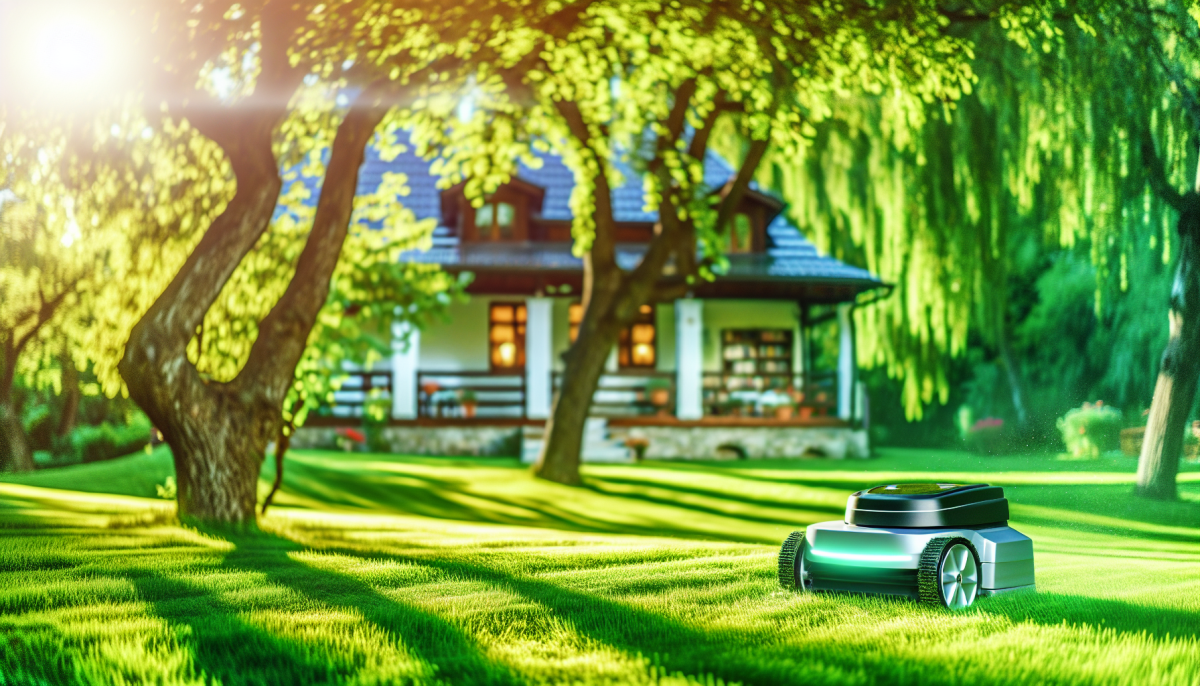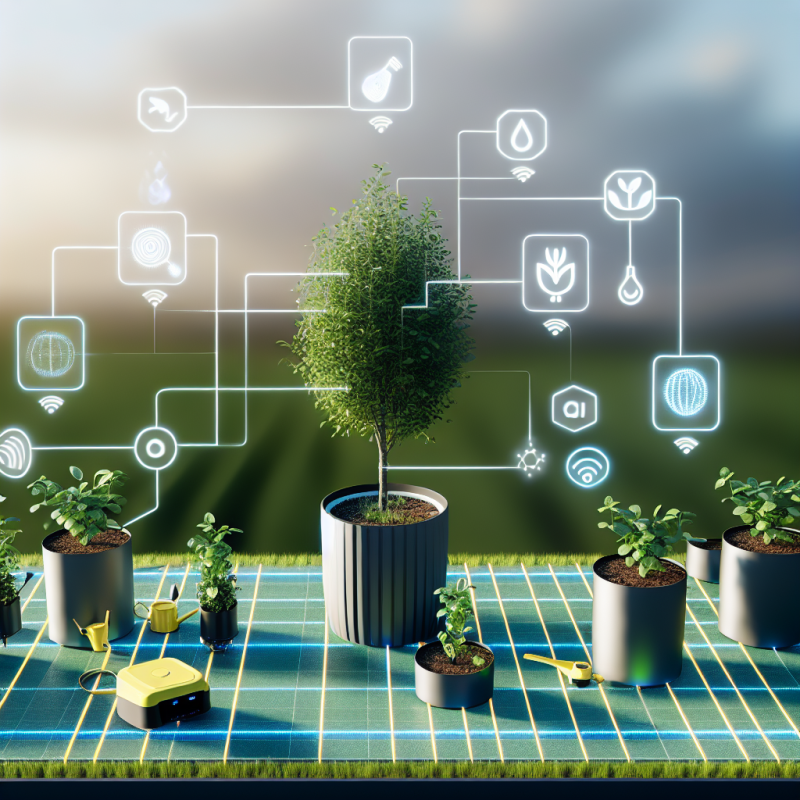Artificial Intelligence (AI) has become a game changer in many fields, and gardening is no exception. By utilizing AI technology, gardeners can now plan their gardens more effectively than ever before. From choosing the right plants to optimizing layout and care, AI offers valuable insights that make gardening a more enjoyable and successful endeavor.
One of the primary ways AI enhances garden planning is through plant selection. Gardeners can input data about their local climate, soil type, and sunlight conditions into AI-powered applications. These programs then analyze the information and suggest the best plants suited for the specific environment. This not only saves time but also increases the chances of creating a thriving garden that flourishes throughout the seasons.
Another significant benefit of AI in garden planning is its ability to optimize garden layout. AI tools can generate various design options based on the size of the garden space and the types of plants chosen. By considering factors like plant height, spread, and growth habits, these tools help gardeners arrange their plots efficiently, ensuring that plants have enough space to grow without overshadowing one another.
Finally, AI can assist in ongoing garden care. By analyzing data from sensors placed in the garden, AI systems can provide real-time recommendations on watering, fertilization, and pest control. This ensures that the garden receives the right amount of care, reducing waste and improving overall plant health. With these intelligent solutions, gardeners can enjoy a more hands-off approach while still achieving beautiful results.
Smart Tools for Efficient Gardening
Gardening is a beloved hobby for many, but it can often be time-consuming and challenging. With the advent of AI technology, gardening has entered a new era of efficiency and ease. Smart tools are revolutionizing the way we cultivate our gardens, allowing gardeners of all skill levels to enjoy the process while spending less time on manual tasks.
One of the most exciting developments in smart gardening is the use of AI-powered sensors. These devices can monitor soil moisture levels, temperature, and nutrient content. By analyzing this data, the sensors provide real-time updates on when to water or fertilize plants. This not only optimizes plant health but also conserves water, making gardening more sustainable.
In addition to sensors, there are now smart irrigation systems that automate watering schedules. These systems use weather forecasts and soil conditions to adjust their operations. Imagine not having to worry about your plants wilting in the heat or overwatering in rainy weather! With these innovative tools, gardeners can ensure their plants receive precise care tailored to their specific needs.
Moreover, AI technology extends beyond soil and water management. Gardening apps equipped with image recognition can identify plant species and diagnose health issues based on photos taken by users. This feature empowers gardeners with valuable knowledge about their plants, making it easier to prevent disease and promote healthy growth. With these smart tools, anyone can feel like a seasoned gardener, transforming their gardening experience into a more efficient and enjoyable endeavor.
Personalized Plant Care Recommendations
Using data collected from sensors and mobile applications, AI can analyze the conditions in your garden and suggest specific actions. For example, if your soil moisture levels are low, the system might recommend watering techniques or schedules that best suit your plants’ needs. Additionally, if pests are detected, the technology can identify them and recommend eco-friendly treatments to help you deal with the issue without harming your plants.
Moreover, personalized plant care recommendations can help beginners and experienced gardeners alike make informed decisions. With intuitive interfaces, users can easily input details about their plants, such as their watering habits, light conditions, and growth stages. The AI system learns from this information and evolves its suggestions over time, helping gardeners improve their skills and ensure their plants thrive.
As gardening becomes a more intricate science with the help of AI, enthusiasts can enjoy a richer, more engaging experience. Personalized recommendations serve to demystify the process, allowing more people to participate in the joy of gardening. With the right guidance, anyone can transform their outdoor space into a lush, vibrant sanctuary.
The Future of Gardening Innovation
AI-driven tools and applications are making gardening more accessible and efficient for both beginners and seasoned enthusiasts. For instance, smart assistants can analyze the specific conditions of a garden, suggesting optimal plants based on sunlight, climate, and soil type. These insights empower gardeners to make informed decisions, ultimately enhancing the productivity of their green spaces.
Moreover, automation plays a crucial role in this gardening revolution. From self-watering systems to robotic weeders, AI technology is taking the labor out of gardening. Imagine lounging in your home while a robotic arm tends to your roses or a drone monitors the health of your vegetable patch. These innovations not only save time but also help ensure that gardens thrive with minimal effort.
As we move forward, integrating AI with sustainable gardening practices becomes essential. Smart sensors can monitor environmental impacts, allowing gardeners to grow their plants responsibly. By utilizing data analytics to optimize resources, we can cultivate healthy gardens that contribute positively to the ecosystem. This balance between technology and nature will define the future of gardening, making it an exciting time to be part of this evolving landscape.



